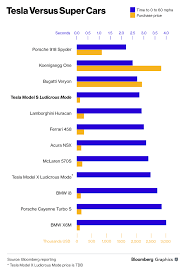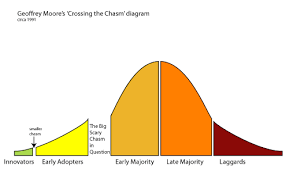Have a look at this Dilbert comic strip from June 2000.
Being an electrical engineer myself, I sympathize with the Dilbert’s nerdiness, kind of Charlie Brown plus extra nerd.
However, things have changed since the year 2000.
The fastest production sedan today is the Tesla Model S, an all electric vehicle with the famous “insane” mode that will accelerate the car from 0-60 mph in 3.2 seconds.
For those not familiar with these numbers, this is acceleration in the exotic car territory. Only special cars costing hundreds of thousands of dollars can do this.
 This week, Tesla announced that they have improved it some more with the “ludicrous” mode which will allow the car to now accelerate from 0-60 mph in 2.8 seconds.
This week, Tesla announced that they have improved it some more with the “ludicrous” mode which will allow the car to now accelerate from 0-60 mph in 2.8 seconds.
Who cares, you say.
Elon Musk, the CEO of Tesla Motors as well as Space X and Solar City, said that his first question on his first date with a girl friend is to find out what she thinks of electric vehicles.
A very Dilbert like approach.
Elon added that these days, the reception is decidedly better than before.
There are those who think that spending effort in getting great acceleration times is juvenile and detract Tesla from building better battery electric vehicles.
However, there is no doubt that the public perception of electric vehicles is well captured in the Dilbert comic strip in 2000 but Tesla cars are now written in luxury media as well as the environmentally conscious ones.
Some time between 2000 and now, it is gradually becoming desirable to have an electric car.
For years, engineers extol the virtues of lower energy cost, zero emissions, silent operation, and low maintenance of battery electric vehicles. The public, though, seemed to be concentrating on range anxiety, danger to pedestrians of a quiet car, high initial cost of buying one etc.
It is the glitz and glamour of a fast car with a big computer screen that finally got the attention of the early adopters and maybe these initial user numbers will eventually convince the larger conservative public to look at the advantages of electric cars rather than concentrating on minimizing the shortcomings.
Public perception i s not changed merely by logical arguments but also through trend setters that take chances.
s not changed merely by logical arguments but also through trend setters that take chances.
Our evolutionary experiences likely favour following others rather than rely on our own judgment, especially in areas where we do not feel we have knowledge in.
In today’s intricate technical world, that is pretty much everything new.
